Search Results
Showing results 1 to 20 of 24
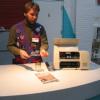
Inkjet Printer
Source Institutions
In this activity, learners investigate how inkjet printers produce tiny, precise drops of ink.
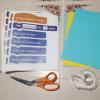
Program Your Morning
Source Institutions
In this activity, learners will explore coding by arranging words and phrases to create an order of operations in this low tech version of computer programming.

Musical Sculpting Machine: Squeeze Play-Doh to Make Music
Source Institutions
Play-Doh is conductive! Use the semiconductive qualities of Play-Doh to make your own squeezable instrument. Pico Cricket is required.

The Poor Cartographer: Graph Coloring
Source Institutions
In this activity, learners help a poor cartographer color in the countries on a map, making sure each country is colored a different color than any of its neighbors.
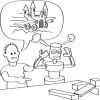
Programming Languages: Harold the Robot
Source Institutions
In this activity related to computer programming, learners give directions to a "robot" (either an adult or another learner) and find out which instructions the robot is able to follow, and how their
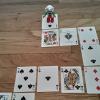
Coding Algorithms
Source Institutions
In this activity, learners will code an algorithm to make it through a maze.

Programming Languages: Marching Orders
Source Institutions
In this activity about computer programming, learners follow instructions in a variety of ways in order to successfully draw figures.

Wash This Way
Source Institutions
In this activity on page 4 of the PDF, learners investigate the importance of washing their hands.
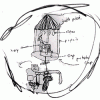
Art Cars
Source Institutions
In this activity, learners design miniature cars. Learners can create a telephone car, soccer car, merry-go-round car, or any other theme car they can imagine.
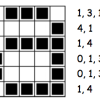
Colour by Numbers: Image Representation
Source Institutions
This activity shows learners how computers use numbers to represent pictures. A grid is used to represent the pixels (short for picture elements) of a computer screen.
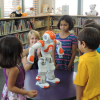
Circuits with Friends
Source Institutions
In this activity, learners explore the parts of a circuit by modeling, as a group, a “human” circuit.

Sound Representation: Modems Unplugged
Source Institutions
In this activity, learners listen to songs and decode hidden messages based on the same principle as a modem. As a final challenge, learners decode the binary messages in a music video.

Program a Friend
Source Institutions
In this activity (on page 2), one person "programs" the other like a robot to move through a space, trying to get them to avoid obstacles and reach a goal.
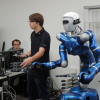
How to Train Your Robot
Source Institutions
In this activity, learners discover that training a robot can be hard work! Learners investigate how robots complete a task by following a list of sequential instructions.

Mind-Reading Magic
Source Institutions
In this activity, learners recreate a method of detecting and correcting errors in computers called 'parity'.
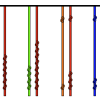
Quipus
Source Institutions
Learners create an Incan counting device called a quipu (pronounced kee-poo).
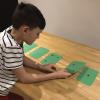
Binary Challenge
Source Institutions
In this activity, learners cut out 5 paper cards and label them with 1, 2, 4, 8, or 16 dot(s) to explore binary digits.

Find My Card
Source Institutions
In this activity, learners find the answer to the question, "if you have a pile of 8 cards, and you remove half, then half again, how many times can you do this until you get to just one card?" This w
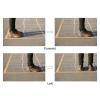
Kidbots
Source Institutions
In this activity, one person acts as a human robot while another acts as their developer by programming their actions.

Build a Giant Puzzle!
Source Institutions
In this activity, learners assemble large cubes to make nano-related images. Learners discover how different objects are related to nanoscience and nanotechnology.
